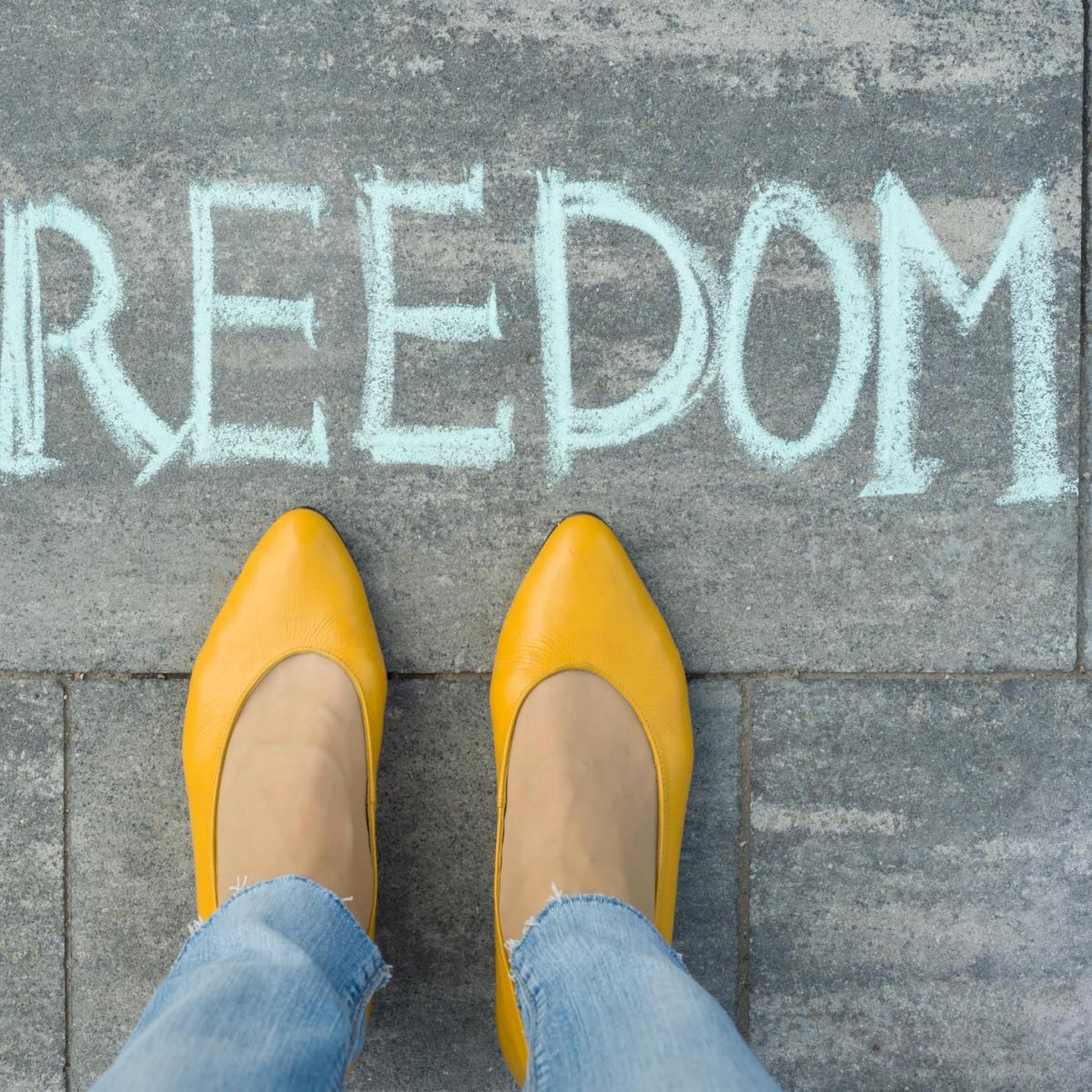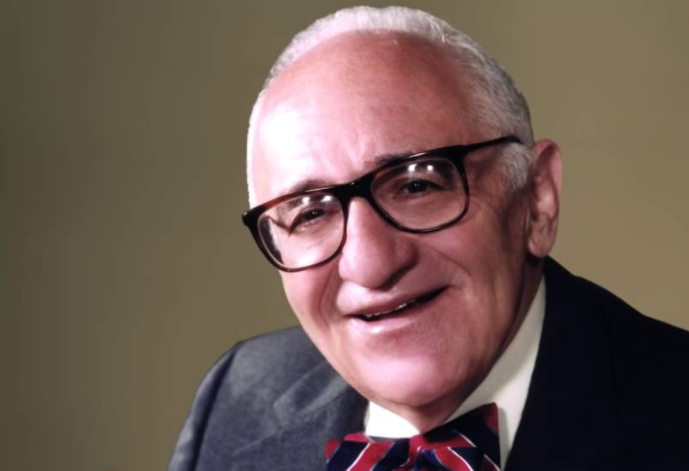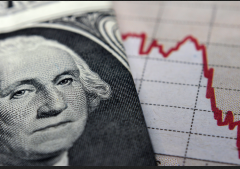. In many years of lecturing at Mises University, Judge Napolitano has given the same—terrifying—ending to his introductory speech. Not until the horrors of this year did it dawn on me that perhaps his point has its basis in reality. The dear judge often mentions, almost like a joke, the libido dominandi—the desire to dominate, or the will to power, harking back to Augustine of Hippo’s centuries-old writing. We find similar notions in Friedrich Hayek’s “Why the Worst Get on Top” chapter in The Road to Serfdom and most certainly in the eerily relevant writing of Robert Higgs. The memorable ending in Napolitano’s lecture is: I expect that I will die, faithful to my first principles…in my bed, surrounded by people that love me. Some of you may die, faithful to first
Topics:
Joakim Book considers the following as important: 6b) Mises.org, Featured, newsletter
This could be interesting, too:
Nachrichten Ticker - www.finanzen.ch writes Die Performance der Kryptowährungen in KW 9: Das hat sich bei Bitcoin, Ether & Co. getan
Nachrichten Ticker - www.finanzen.ch writes Wer verbirgt sich hinter der Ethereum-Technologie?
Martin Hartmann writes Eine Analyse nach den Lehren von Milton Friedman
Marc Chandler writes March 2025 Monthly

.
In many years of lecturing at Mises University, Judge Napolitano has given the same—terrifying—ending to his introductory speech. Not until the horrors of this year did it dawn on me that perhaps his point has its basis in reality.
The dear judge often mentions, almost like a joke, the libido dominandi—the desire to dominate, or the will to power, harking back to Augustine of Hippo’s centuries-old writing. We find similar notions in Friedrich Hayek’s “Why the Worst Get on Top” chapter in The Road to Serfdom and most certainly in the eerily relevant writing of Robert Higgs.
The memorable ending in Napolitano’s lecture is:
I expect that I will die, faithful to my first principles…in my bed, surrounded by people that love me. Some of you may die, faithful to first principles, in a government prison. And some of you may die, faithful to first principles, in a government town square to the sound of a government trumpet blaring.
The few times I’ve been fortunate enough to hear him speak those words live, they always struck me as a little exaggerated. Even though the room fell dead quiet, I felt sick to my stomach, and had goosebumps all over my skin, it couldn’t possibly get that bad, could it?
The madness of 2020 has had me reconsider.
The Control of Others’ Lives
Wanting to rule over others is, to some extent, innate. Perhaps it follows from our misplaced sense of superiority (e.g., the Lake Wobegon effect) or from a hubristic pretense of knowledge, or perhaps from an inability to see the full range of value that others provide: I know better how things should be done; if only I were in charge, the world would be better.
What’s clear is that in anno 2020, the ever-present lust for domination experienced a perfect storm—a storm that let them unleash their controls to lecture us and commandeer us hither and thither, to centrally plan a health campaign, and to direct anyone and everyone as to what they were allowed to do. What’s so terrifying about this isn’t that the desire to rule others exists—it always did—but that the forces that usually keep it at bay somehow just gave up.
In the early days of the pandemic, those of us who make our living crafting words were fighting over libertarianism: “There are no libertarians in a pandemic,” they said. Perhaps, we politely responded, like everyone else a bit afraid of what we then didn’t know. But surely, there are no statists coming out of one either: “beneficial” regulations that disrupted production and distribution of stuff suddenly high in demand were lifted, centralized control botched things left and right. With obvious failure of this magnitude, we couldn’t possibly want government commanding us around and regulating our affairs?
In hindsight, that dispute seems quaint—and we forgot the core of it. Now, people from Paul Krugman to Tyler Cowen seems to think that libertarians rule the world and that everything that has gone wrong is libertarians’ fault. In the race to centrally plan everything from production decisions to who gets to leave their house wearing what, every other concern—except, naturally, Black Lives Matter—was thrown overboard.
Libertarianism isn’t an ideology about what’s the better outcome, however defined. It’s not about how “we” fix a medical problem, or how best to mitigate disasters like pandemics. It’s not even about how to distribute the breathtaking surplus that our highly productive economies create. It’s about who gets to make decisions about what. It’s not about how we best minimize pandemic threats, not how we best optimize some imagined private or social welfare function, not how we best ensure long and healthy lives.
Whoever owns something decides. If you—the owner and manager of your body—want to put harmful drugs in it, be my guest. That’s none of my business. If you wish to carry crystals that protect against evil, or against pink elephants lurking in the shadows, knock yourself out. If you wish to dress up in phony gear that staves off invisible microbes, have fun.
But you do not have the right to mandate that others follow suit. You do not, like Cowen recently did, have the high ground to say “actually, [freedom] just doesn’t seem worth it.” He, as David Henderson chastized him for it, “seems to be substituting his own values for those of others”—the cardinal sin for anyone who pays lip service to liberty.
And he wasn’t the only one. Succumbing to the temptation of commandeering others about, “libertarians” on both sides of the Atlantic started invoking externalities and public goods to justify one patently unjust and invasive policy after another. Sam Bowman, a self-described neoliberal and formerly of the Adam Smith Institute, is, like Cowen, just the most vocal of the casualties.
But public health is not a public good, as Michel Accad described recently in response to the Great Barrington Declaration. Nor is it of anyone else’s concern:
An individual’s life and health are particular goods, not common goods. It is an obvious metaphysical truth that my health and my life can only be mine and are not shared in common with anyone, and certainly not with the political community at large. At its heart, “public health” is an oxymoron, since “the public,” as an abstraction, has no health to speak of. Only individuals are healthy or not.
Lockdowns as pandemic-fighting policy are this perfect domineering strategy: if the infection rates go down, success; you win and can invoke the same policy of control next time there’s some alleged disaster looming. If the infection rates remain the same, or go up, you clamp down harder—success again. What would the world have to look like for you to concede? What would have to happen for you to say “Actually, stripping away our population’s freedoms and dignities don’t seem to help us in reducing the infections”? There is no circumstance under which lockdowners accept that their pandemic policy does not work, or more importantly, runs against liberty or basic human dignity.
Krugman and True Liberalism
Interestingly enough, Krugman almost got it right. Lambasting libertarians for everything that’s wrong in pandemic America—yes, it’s exactly as nutty as it sounds—he writes:
Many things should be matters of individual choice. The government has no business dictating your cultural tastes, your faith or what you decide to do with other consenting adults.
We used to think that liberals wanted to liberate the people from government constraints, a fundamental hands-off approach. American liberals long since forgot this insight: it’s no longer about leaving people alone, it’s about correcting their thought crimes before they manifest themselves in the world. Still, the liberals of today pay lip service to this notion before they pivot 180 degrees—and start listing activities that it is now the government’s business to decide: what you wear in public; where you go; what you think; what you trade, with whom, and where; ensuring that you don’t unknowingly spread germs around.
The pandemic brought out the worst in people and revealed clearly what was always simmering under the surface: an innate desire to dominate others. To put them in their place, to shove nonsensical ideas down their throats, to dress them up in paltry gear, to ridicule and attack those who deviate from the One True Government Faith. The pandemic showed who truly supported and respected the values that others may hold—and who would rather give in to the temptation of power, who would override the faulty actions among our inferior plebs.
“Freedom lies in the human heart,” said Judge Napolitano, “but it must do more than just lie there.” Remember that when you are stripped of liberties in the name of everyone else’s well-being.
Tags: Featured,newsletter







